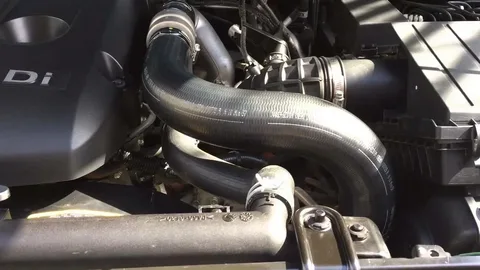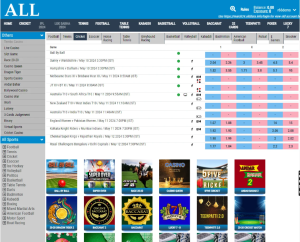If you own a Nissan Navara D40, understanding the importance of the oil cooler in your vehicle is crucial. The Navara D40 oil cooler plays a significant role in maintaining the optimal engine oil temperature, ensuring smooth operation and longevity of your car. This blog post will discuss everything you need to know about the Navara oil cooler, from its function to common problems and maintenance tips. So, let’s dive into it and arm ourselves with valuable information to keep our Navara D40 running smoothly and efficiently. Knowledge is power, especially when it comes to vehicle maintenance.
Understanding the Role of the Oil Cooler in Your Navara D40
The oil cooler within your Navara D40 functions as a critical component in managing the engine oil’s temperature. This mechanism allows the heated engine oil to flow through a network of tiny tubes. These tubes are either air-cooled or coolant-cooled, effectively dissipating heat from the oil. This process is vital because it maintains the oil at a temperature conducive to optimal engine performance. Ensuring the oil doesn’t become too hot is an excellent way to prevent potential overheating issues, which can lead to significant engine damage if left unaddressed.
Moreover, by keeping the engine oil within its ideal temperature range, the oil cooler contributes to the efficient operation of your vehicle. This is not just about preventing overheating but also maintaining the oil’s lubrication properties. Properly lubricated engine components are less likely to wear prematurely, so your Navara D40 can achieve better longevity and reliability. In essence, the oil cooler is a safeguard against the thermal degradation of engine oil, a condition that can reduce the oil’s effectiveness as a lubricant and cooler. This underlines the oil cooler’s role in maintaining engine performance and prolonging the engine and vehicle’s overall lifespan.
Symptoms of Nissan Navara Oil Cooler Problems
When maintaining your Nissan Navara D40, knowing the signs of oil cooler problems can save you from costly repairs and potential engine damage. The oil cooler is essential for regulating your engine’s temperature; any issues should not be taken lightly. Recognizing the symptoms early on can help ensure timely intervention.
One of the first signs you might notice is an unusual increase in engine temperature. If your Navara D40 starts running hotter than usual, it could indicate that the oil cooler is not effectively dissipating heat. This situation might be accompanied by the engine oil temperature warning light illuminating your dashboard, signalling an immediate need for attention.
Another telltale symptom of Nissan Navara oil cooler problems is the presence of oil in the coolant or vice versa. This is often due to a breach in the oil cooler that allows oil and coolant to mix, leading to contamination. Such contamination can significantly impair the efficiency of your vehicle’s cooling and lubrication systems. Checking the coolant reservoir for an oily film or the engine oil for a milky appearance can help identify this issue.
Unexplained oil leaks under your vehicle are also a red flag. While oil leaks can stem from various sources, leaks near the oil cooler area should prompt a closer inspection of the cooler. A damaged or worn-out cooler may develop cracks or broken seals, leading to oil leaks that can decrease oil levels and, subsequently, the engine’s lubrication and cooling efficiency.
Lastly, overheating under usual driving conditions or a noticeable drop in engine performance could also point towards problems with the oil cooler. A clogged or malfunctioning oil cooler can restrict oil flow, reducing its ability to cool the engine effectively and leading to performance issues.
How to Maintain Your Navara Oil Cooler?
The oil cooler in your Navara plays a crucial role in regulating the temperature of the engine oil, ensuring optimal performance and longevity of your vehicle’s engine. Proper maintenance of the oil cooler is essential to prevent overheating and potential damage to your engine. Here’s a comprehensive guide on effectively maintaining your Navara oil cooler.
Regular Inspection
Regularly inspect the oil cooler for any signs of leaks, corrosion, or damage. Check for oil stains or puddles beneath the vehicle, which could indicate a leak in the oil cooler. Additionally, examine the more excellent fins for any debris buildup that may obstruct airflow.
Cleanliness is Key
Keep the oil cooler clean to ensure efficient heat dissipation. Use a soft brush or compressed air to remove dirt, dust, and debris from the more excellent fins. Be gentle to avoid bending or damaging the fins, impairing cooling performance.
Check Oil Levels
Monitor your vehicle’s oil levels regularly and ensure they are within the recommended range. Low oil levels can lead to increased heat generation, putting additional strain on the oil cooler. Top up the oil as needed with the manufacturer-recommended oil grade.
Replace Oil Cooler Lines
Inspect the oil cooler lines for signs of wear, cracking, or leakage. Replace any damaged or deteriorated lines promptly to prevent leaks and maintain proper oil flow to the cooler.
Professional Maintenance
Consider professional servicing for your Navara’s oil cooler at regular intervals. A qualified technician can perform a thorough inspection, cleaning, and maintenance to ensure the optimal performance and longevity of the oil cooler.
Troubleshooting Common Engine Oil Cooler Holden Cruze Issues
Holden Cruze owners may encounter various issues with their engine oil cooler, leading to potential performance and reliability concerns. Understanding these common problems and their troubleshooting methods can help maintain the health of your vehicle.
1. Oil Leaks:
One prevalent issue with engine oil coolers in Holden Cruzes is oil leaks. These leaks can occur due to damaged seals or gaskets, corrosion, or loose connections. To troubleshoot, inspect the oil cooler assembly for any visible leaks or signs of oil residue. Tightening connections and replacing damaged seals can often resolve this issue.
2. Overheating:
Overheating of the Engine Oil Cooler Holden Cruze can lead to inefficient engine oil cooling, potentially causing engine damage. Insufficient airflow, coolant leaks, or a malfunctioning thermostat can contribute to overheating. Check the coolant level and quality, inspect the radiator and hoses for leaks or blockages, and ensure proper thermostat operation to prevent overheating.
3. Coolant Contamination:
Contamination of engine oil with coolant can occur if a leak in the oil cooler allows coolant to mix with the oil. This can result in reduced lubrication properties of the oil and engine damage. Perform an oil analysis to detect coolant contamination and inspect the oil cooler for leaks. Replacement of the oil cooler and thorough flushing of the engine oil system may be necessary to resolve this issue.
4. Reduced Oil Pressure:
A malfunctioning engine oil cooler can lead to a drop in oil pressure, affecting engine performance and longevity. Check the oil pressure using a gauge to ensure it meets manufacturer specifications. Inspect the oil cooler for clogs, leaks, or other damage if the pressure is low. Cleaning or replacing the oil cooler assembly may be required to restore proper oil pressure.
Maximizing the Lifespan of Your 1.8 Cruze Oil Cooler
Your Chevrolet Cruze’s 1.8-litre engine relies on its oil cooler to maintain optimal operating temperatures and ensure smooth performance. To ensure longevity and efficiency, implementing proper maintenance routines is essential. Here’s a guide to help you maximize the lifespan of your Cruze oil cooler:
Regular Inspections:
Visual inspections of the oil cooler and surrounding components are performed regularly. Look for signs of leaks, corrosion, or damage. Addressing issues promptly can prevent significant problems down the line.
Monitor Oil Levels and Quality:
Keep a close eye on your engine oil levels and quality. Low or dirty oil levels can strain the oil cooler and lead to premature wear. Follow the manufacturer’s recommendations for oil change intervals and use high-quality oil suitable for your Cruze.
Maintain Cooling System:
Ensure the cooling system functions correctly, including the radiator, thermostat, and coolant levels. A well-maintained cooling system helps the oil cooler regulate temperatures effectively, prolonging its lifespan.
Cleanliness Is Key:
Regularly clean the exterior of the 1.8 Cruze Oil Cooler to remove dirt, debris, and road grime. Use a gentle detergent and a soft brush or cloth to avoid damaging the more excellent fins. Keeping the cooler clean improves heat dissipation efficiency.
Avoid Overloading:
Avoid overloading your Cruze or towing heavy loads beyond its capacity. Excessive strain on the engine can increase heat production, putting additional stress on the oil cooler.
Optimizing Oil Cooler Performance for Your Navara D40
Enhancing the performance of the oil cooler in your Navara D40 can significantly contribute to your vehicle’s overall efficiency and reliability, especially under strenuous conditions. A practical approach is to upgrade the existing oil cooler to a more robust model designed to handle higher demands. Such an upgrade can be particularly beneficial for drivers who frequently tow or carry heavy loads, which inherently increase engine temperature.
In addition to upgrading the oil cooler itself, incorporating synthetic engine oil into your maintenance routine can offer substantial benefits. Synthetic oils are engineered to provide superior lubrication and are more effective at heat dissipation than conventional oils. This characteristic can further aid in maintaining optimal engine temperature, complementing the enhanced performance of an upgraded oil cooler.
It’s also beneficial to assess the airflow around the oil cooler. Ensuring that there’s sufficient airflow can help in maximizing the cooler’s efficiency. Sometimes, the placement of additional vehicle accessories or modifications can inadvertently block or reduce airflow, impacting the cooler’s ability to perform its function. Reevaluating these elements and making necessary adjustments can significantly affect cooling performance.
Implementing these optimization strategies not only contributes to a more efficient cooling system but also supports the longevity of your engine by preventing overheating and reducing wear on critical components. By taking these steps, you can improve the functionality of your Navara D40’s oil cooler, ensuring it meets the demands of your driving needs.
Conclusion
The effectiveness and longevity of the Navara D40 oil cooler are essential to the vehicle’s overall performance and the engine’s health. A well-maintained oil cooler ensures that the engine oil remains at a temperature that promotes optimal performance, thus preventing overheating and ensuring the lubricant retains its protective qualities. Recognizing signs of potential issues early on, such as leaks or overheating, and addressing them promptly can save you from expensive repairs and extend the life of your engine.
FAQS
Q: How frequently should the oil cooler on my Navara D40 be checked?
A: For optimal performance and to prevent potential issues, inspecting the oil cooler as part of your vehicle’s regular service routine is advisable. Additionally, an immediate inspection is prudent if you encounter any signs of oil Cooler problems, such as overheating or unexpected oil leaks.
Q: Can I replace my Navara D40 oil cooler on my own?
A: While some individuals with mechanical experience might feel comfortable tackling this task, oil cooler replacement often involves detailed knowledge of the vehicle’s cooling system. To ensure that the Navara D40 oil cooler is installed correctly and functions as expected, seeking the expertise of a professional mechanic is highly recommended. This approach helps in avoiding potential mistakes that could lead to more serious engine issues down the line.
Q: What kind of maintenance does the oil cooler require?
A: Regular maintenance should include cleaning the cooling fins to remove debris, checking for and addressing leaks, and ensuring the cooler is not damaged or clogged. Additionally, maintaining the overall health of your vehicle’s engine through scheduled oil and filter changes can indirectly benefit the oil cooler’s operation by preventing the buildup of contaminants that could impact its efficiency.








